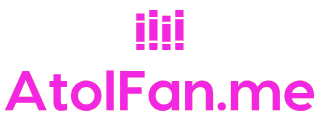What is ADHD?
ADHD is a behavioral disorder characterized by restlessness, inability to control movement impulses as well as trouble in paying attention. The disorder usually begins in early childhood, usually, between the ages of 6 and 12, and may progress well into adolescence if not managed on time. The symptoms are said to improve with age, granted if the treatment regime is followed thoroughly.
ADHD may as well overlap with other disorders such as anxiety, depression or bipolar disorder or other comorbid psychological disorders.
There are 18 symptoms in total of ADHD divided into the two domains; hyperactivity/impulsivity and inattention which are recognized by the Diagnostic Statistical Manual (DSM) V. The DSM is used in diagnosing various psychological disorders and its authenticity is recognized worldwide. As with all disorders, ADHD diagnosis requires impairment in functioning or development. Some of the symptoms include “trouble organizing tasks” “is often easily distracted” “Often fidgets with or taps hands or feet, or squirms in seat.”
Children often depict these types of behavior on a daily basis But concern should be raised when the symptoms start interfering with their daily functioning. Although health2delivery consists of expert writers it is still advised that you consult a doctor.
Causes of ADHD
Current ongoing research suggests the causes of ADHD interacts between, genetic, non-genetic and environmental factors. These include premature birth, brain injuries, drug and/or alcohol use during pregnancy, chaotic family life, or genes. One of the research posits that some parts of brains of patients with ADHD are smaller suggesting abnormalities in the brain may be linked with this disorder.
Treating ADHD
Currently, there is no known cure for this disorder, however, it can be managed and its symptoms can be reduced if not eliminated. Medications and therapy aimed at improving the functionality of the patient. Usually, a combination of both treatments is used for better management.
Medication
There is 5 popular licensed medication used in the treatment of ADHD namely, methylphenidate dexamphetamine, lisdexamfetamine, atomoxetine, guanfacine. These medications help reduce the severity of symptoms such as helping the patient focus, stay calm, and reduce impulses. The medicines also have a number of reported side effects including, aggression, headaches, mood swings and trouble sleeping. The dosage is adjusted accordingly by the GP and often combined with therapies as part of an effective treatment program.
Therapy
Therapies are extremely beneficial in the management of symptoms as well as coping with the disorder in an effective way. They are also useful in managing other disorders such as anxiety that usually manifests itself with ADHD. Therapies include cognitive therapy, behavioral therapy or CBT.
- CBT-Cognitive behavioral therapy.
Perhaps one of the most effective therapies widely used in psychological practice is CBT which is a short term goal oriented therapy. It is a talking therapy which takes a hands-on approach to problem-solving and combines the basic principles of both cognitive and behavioral therapy. The therapist, for example, would change a client’s attitude towards a problem thereby changing their behavior towards it. It is also useful in changing cognitive errors of a client and faulty thinking patterns.











